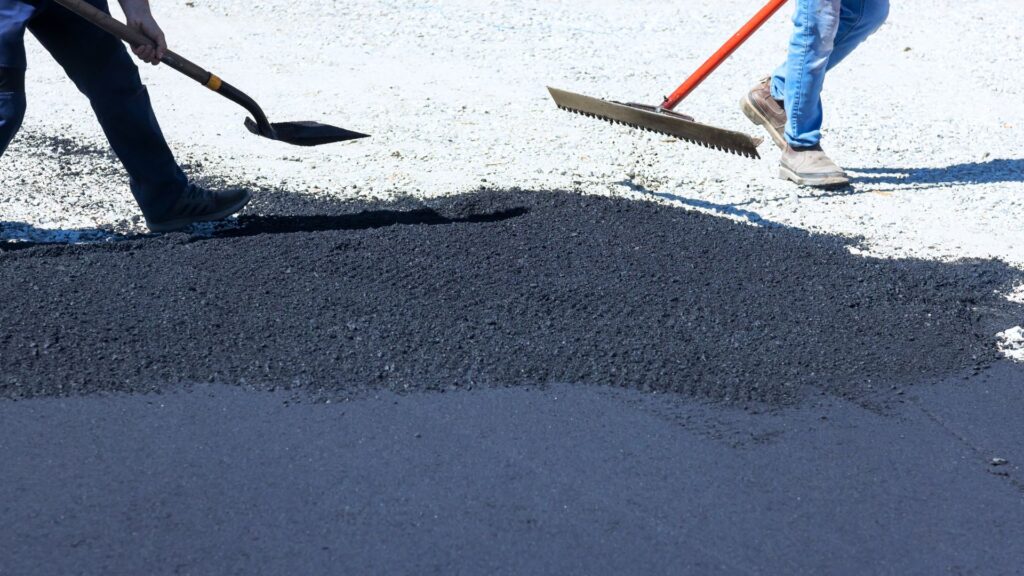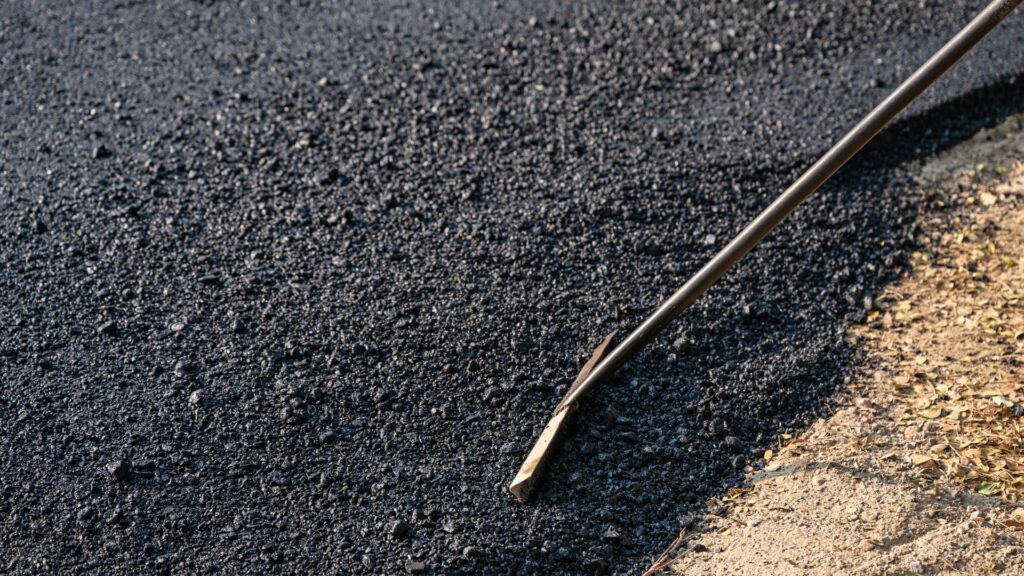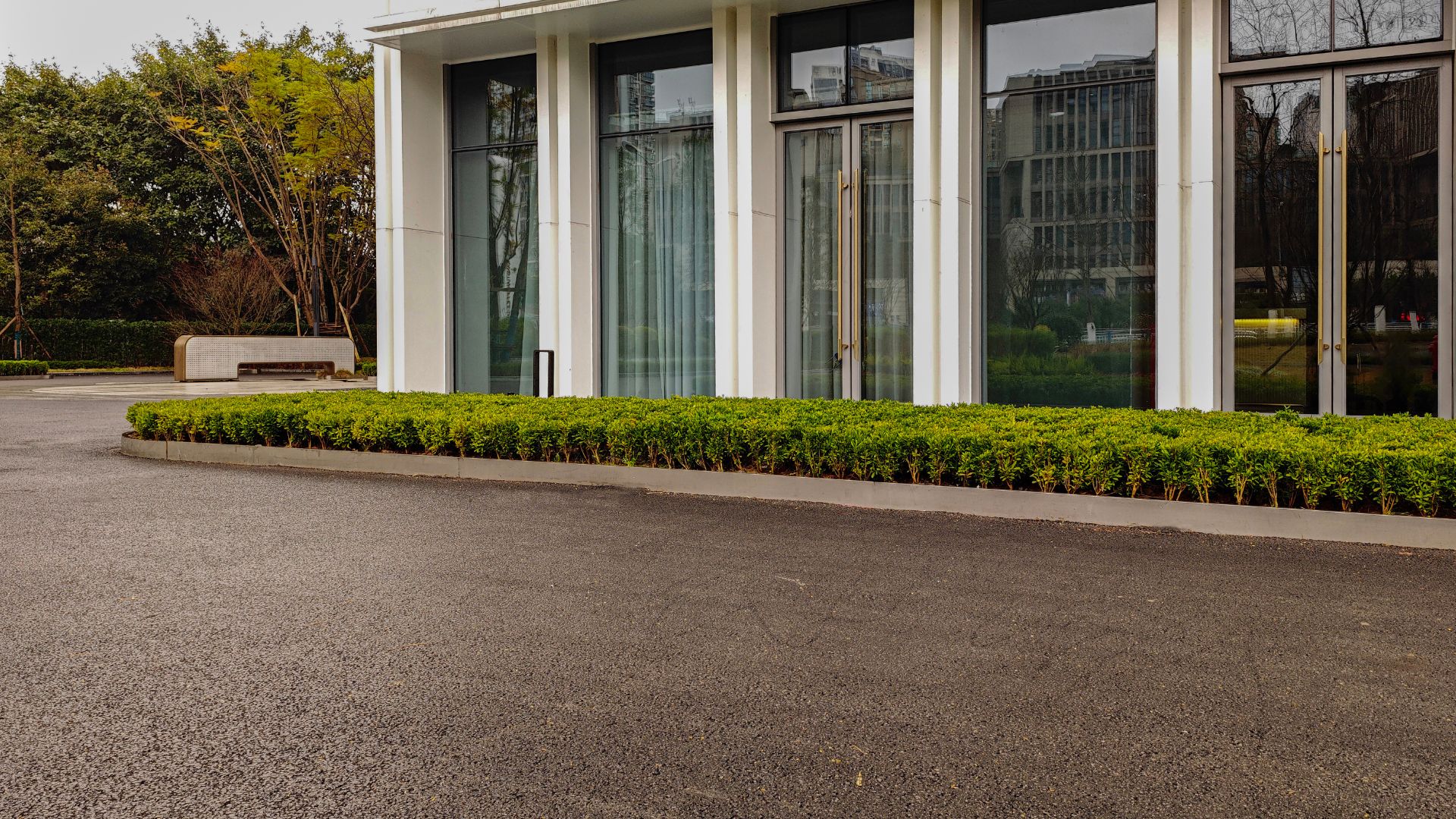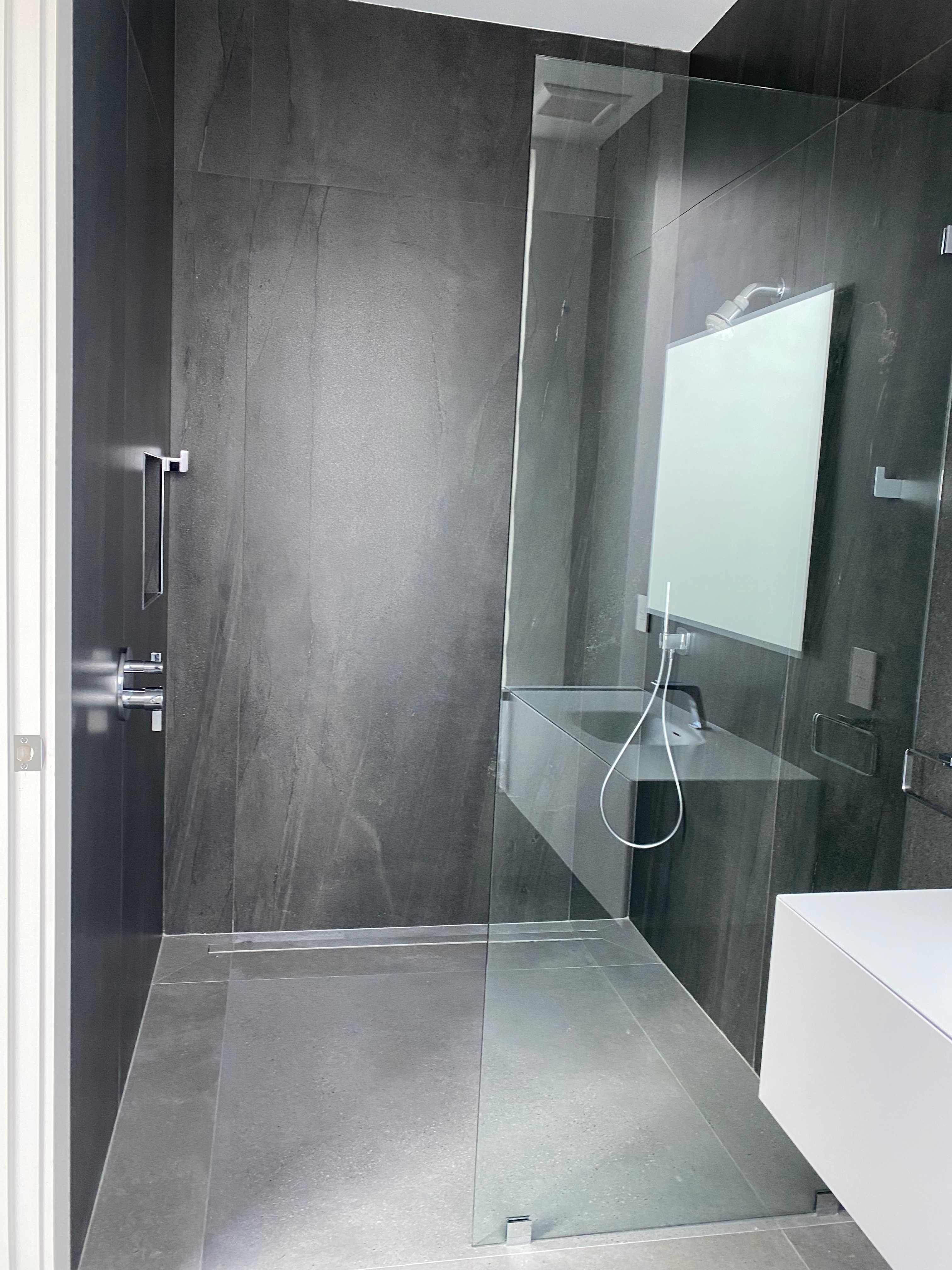If you’re a homeowner looking to protect your investment in a new driveway, you might be asking, “When should you seal a new asphalt driveway?” The timing of sealing your driveway is crucial to ensure its longevity and maintain its pristine appearance. Asphalt is composed of sand, bitumen, and stone, and understanding these materials is crucial for proper maintenance. Let’s dive into the details to help you make an informed decision.
Introduction to Asphalt Driveway Maintenance
Maintaining your asphalt driveway is crucial to extending its lifespan and avoiding expensive repairs. A well-maintained asphalt driveway can last for 30 years or more, while neglecting it can lead to a replacement in as little as 10 years.
Regular maintenance tasks include seal coating, filling cracks, and repairing potholes. Seal coating is particularly important as it protects your driveway from the elements, oil and gas spills, and everyday wear and tear. In this section, we will explore the significance of asphalt driveway maintenance and the advantages of seal coating for new asphalt driveways.
Understanding the Importance of Sealing
Using a driveway sealer on your asphalt driveway is like giving it a protective shield. The sealant acts as a barrier against harsh weather, UV rays, oil spills, and everyday wear and tear. Without it, your driveway is prone to cracks, fading, and other damages, leading to costly repairs.
Benefits of Seal Coating for New Asphalt
Seal coating a new asphalt driveway is essential for several reasons. First, it protects the asphalt surface from the sun’s UV rays, which can cause it to become brittle and crack. It also shields the driveway from water damage and oil and gas spills, which can lead to stains and deterioration. A quality sealant forms a protective barrier, extending the lifespan of your driveway.
Additionally, seal coating enhances the curb appeal of your home by giving the driveway a smoother surface and a fresh, new look. By preventing hairline cracks and larger cracks from forming, seal coating reduces the need for frequent sealing and costly repairs. Investing in a quality sealant for your new asphalt driveway ensures it remains in excellent condition for many years.
What Happens If You Don’t Seal?
Without sealing, asphalt is exposed to the elements, which can cause it to deteriorate faster. Rain and snow can seep into the surface, causing cracking and other damages.
Sunlight causes the asphalt to fade, and oil spills can lead to stains and surface damage. Sealing helps to prevent these issues, ensuring your driveway remains in good condition for years.

When to Seal a New Driveway
The timing of sealing a new driveway is essential. Sealing too early or too late can reduce the effectiveness of the sealant.
Fresh asphalt needs time to cure before sealing to ensure proper hardening and to prevent damage like tire marks and cracking.
How Soon Should You Seal a New Asphalt Driveway?
After installing a new asphalt driveway, it’s crucial to let it cure properly before applying any sealant. Generally, you should wait at least 6 to 12 months before sealing. This waiting period allows the asphalt to fully cure, ensuring the sealant adheres correctly.
Why the Wait?
Asphalt needs time to cure because it contains oils that need to evaporate. Sealing too soon can trap these oils, leading to a soft surface that is prone to damage. By waiting, you ensure that the asphalt is ready to bond with the sealant, allowing it to properly adhere and provide maximum protection.
Ideal Weather Conditions
When you decide it’s time to seal coat your new driveway, pay attention to the weather. The best time to seal is during warm, dry weather, typically in late spring or early summer. Temperatures should be consistently above 50°F (10°C) for at least 24 hours before and after applying the sealant to allow enough time for it to cure properly.
Avoid Rain and Cold
Rain can wash away the sealant before it cures, while cold temperatures can prevent it from adhering properly. Checking the weather forecast is essential to ensure your sealing job is successful.
Steps to Seal Your Driveway
Sealing your driveway is a straightforward process, but attention to detail is key. Understanding the materials that make up asphalt, such as sand, bitumen, and stone, is crucial for proper maintenance and longevity. Here’s a step-by-step guide to help you through the process.
Pre-Sealing Preparation for a New Asphalt Driveway
Before you begin seal coating your new asphalt driveway, proper preparation is key. Start by cleaning the driveway thoroughly with a pressure washer to remove dirt, oil, and other debris. Any potholes or large cracks should be filled with a cold patch or crack filler.
Allow the surface to dry completely before proceeding. It’s also crucial to wait until the asphalt is fully cured, which can take anywhere from 30 to 90 days, depending on weather and installation conditions. Proper preparation ensures that the sealant adheres correctly to the asphalt surface, providing long-lasting protection.
Step 1: Clean the Surface
Start by thoroughly cleaning your driveway. Remove any debris, dirt, and stains. A power washer can be very effective, or you can use a stiff broom and hose. Make sure the surface is completely dry and free of moisture before moving on to the next step.
Step 2: Repair Any Cracks
Check for any cracks or holes in the asphalt and fill them with a suitable filler. This step is crucial because you need to seal cracks before applying the sealant to ensure it adheres properly and provides maximum protection.
Step 3: Apply the Sealant
Once the surface is clean and dry, and any repairs have been made, it’s time to apply the sealant. Use a brush or squeegee to spread the sealant evenly across the driveway. Apply it in thin, overlapping layers to ensure full coverage of the entire driveway.
Step 4: Let It Dry
After applying the sealant, allow it to dry completely. This can take anywhere from 24 to 48 hours, depending on the weather conditions. Keeping the area clear of foot and vehicle traffic during this time is essential for proper care and ensuring the sealant sets properly.

DIY or Professional Seal Coating for Your Driveway
When it comes to seal coating your driveway, you have two options: doing it yourself or hiring a professional. DIY seal coating can be a cost-effective solution, but it comes with potential risks and challenges. Incorrect application can result in a poor finish, uneven coverage, and reduced effectiveness.
On the other hand, hiring a professional ensures a high-quality finish and long-lasting protection. Professionals have the necessary equipment, expertise, and experience to apply the sealant correctly and efficiently. Ultimately, the decision to DIY or hire a professional depends on your budget, time, and level of expertise.
Common Mistakes to Avoid When Seal Coating
Seal coating your driveway requires careful attention to avoid common mistakes. One major mistake is applying the sealant too soon after installation, before the asphalt has fully cured. This can result in a weak bond between the sealant and the asphalt, reducing its effectiveness.
Another mistake is using a low-quality sealant that may not be suitable for your climate or driveway conditions. It’s also important to avoid applying sealant in extreme weather conditions, such as high temperatures, heavy rain, or direct sunlight. By steering clear of these common pitfalls, you can ensure a successful seal coating job and extend the lifespan of your asphalt driveway.
Maintenance Tips for Your Asphalt Driveway
After sealing, regular maintenance is key to preserving the life of your driveway. Regular maintenance is crucial to ensure that your driveway lasts for many years. Here are some tips to keep it in excellent condition.
Regular Cleaning
Keep the entire surface area of your driveway clean by removing leaves, dirt, and debris regularly. This prevents staining and helps maintain the appearance.
Prompt Repairs
Address any small cracks or potholes as soon as they appear. Quick repairs prevent small issues from becoming bigger problems.
Re-sealing
Sealing a driveway every 2 to 3 years ensures ongoing protection and keeps your driveway looking its best. Re-seal your driveway depending on its condition and the amount of wear and tear it experiences.
Conclusion
Knowing when to seal a new blacktop driveway is crucial for protecting its longevity and appearance. By waiting the appropriate amount of time and choosing the right weather conditions, you can protect your investment and keep your driveway in top condition. Regular maintenance and timely repairs will further ensure that your driveway remains a functional and attractive part of your home for years to come.
Sealing your asphalt driveway might seem like a small task, but it has a big impact on the life and look of your driveway. So, plan wisely, seal appropriately, and enjoy the benefits of a well-maintained driveway.





Leave a Reply